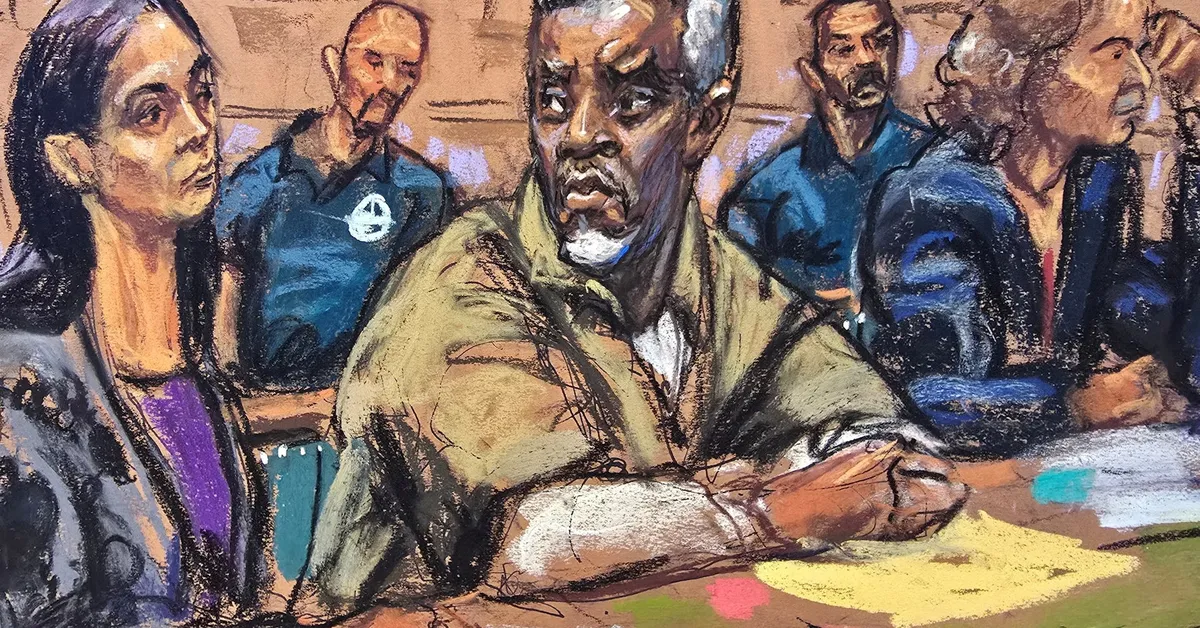
Sean 'Diddy' Combs, the renowned hip-hop mogul known for his significant contributions to American music in the 1990s and early 2000s, is set to defend himself in a high-profile sex trafficking trial commencing next week. Combs, who has pleaded not guilty to five felony counts, including racketeering and sex trafficking, aims to convince the jury that the women involved in his alleged sex parties participated voluntarily.
Prosecutors from the Manhattan U.S. Attorney's office allege that for over two decades, Combs exploited his vast business empire to attract women with promises of love and financial support, only to coerce them into participating in illicit, drug-fueled sexual activities dubbed "Freak Offs" alongside male sex workers. Legal experts predict a challenging road ahead for Combs' defense, with New York Law School professor Heather Cucolo emphasizing the power dynamics at play in these allegations.
Combs' legal team argues that the prosecution is attempting to criminalize a consensual swingers lifestyle that involved him and his long-term partners. As jury selection commenced on May 6, with opening statements scheduled for May 12, the defense faces the daunting task of discrediting the testimonies of at least four women who claim they were coerced into unwanted sexual acts.
Combs' lawyers intend to suggest that the accusers may have financial motives for their claims, a tactic that has been previously employed by other high-profile defendants in the wake of the MeToo movement. Despite this strategy, many of these defendants, including R&B artist R. Kelly and socialite Ghislaine Maxwell, have faced convictions regardless of their defense arguments.
In a recent court hearing, defense attorney Teny Geragos claimed that one accuser had selectively presented evidence to prosecutors, omitting crucial context that could impact her credibility. Another woman, referred to as Victim-1, allegedly sought $30 million from Combs in exchange for not publishing a memoir about their relationship, which ended in a lawsuit settled for an undisclosed sum.
Compounding Combs' legal issues is a hotel surveillance video that prosecutors plan to introduce, purportedly showing him kicking and dragging a woman during an incident in March 2016. This video is expected to be pivotal in the prosecution's case, as they argue it illustrates Combs' abusive behavior. However, the defense contends that this footage simply depicts a domestic dispute unrelated to any alleged racketeering conspiracy.
Defense lawyer Marc Agnifilo has argued that the woman involved in the video was attempting to leave after discovering Combs had another girlfriend, suggesting that the incident was mischaracterized. However, legal experts caution that the nature of the video may undermine Combs' defense, as any display of violence could be difficult to justify in the eyes of a jury.
As the trial approaches, Combs' defense is actively seeking to present forensic evidence that could challenge the portrayal of the surveillance video. Nonetheless, legal analysts suggest that even if the alleged victim had acted improperly, it is unlikely that a jury would overlook the violence depicted in the footage. The outcome of this trial could have significant implications not only for Combs but also for ongoing discussions surrounding sex trafficking and abuse in the entertainment industry.